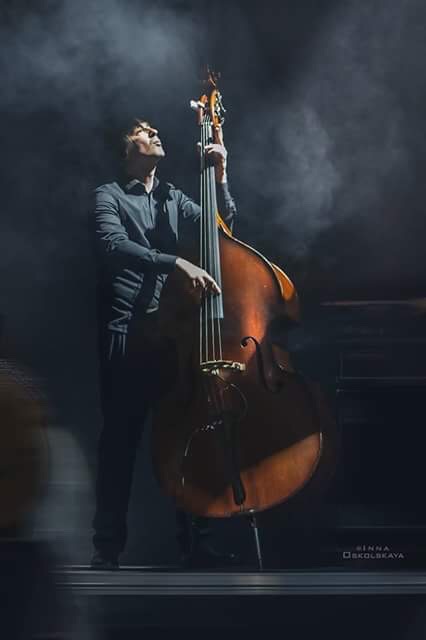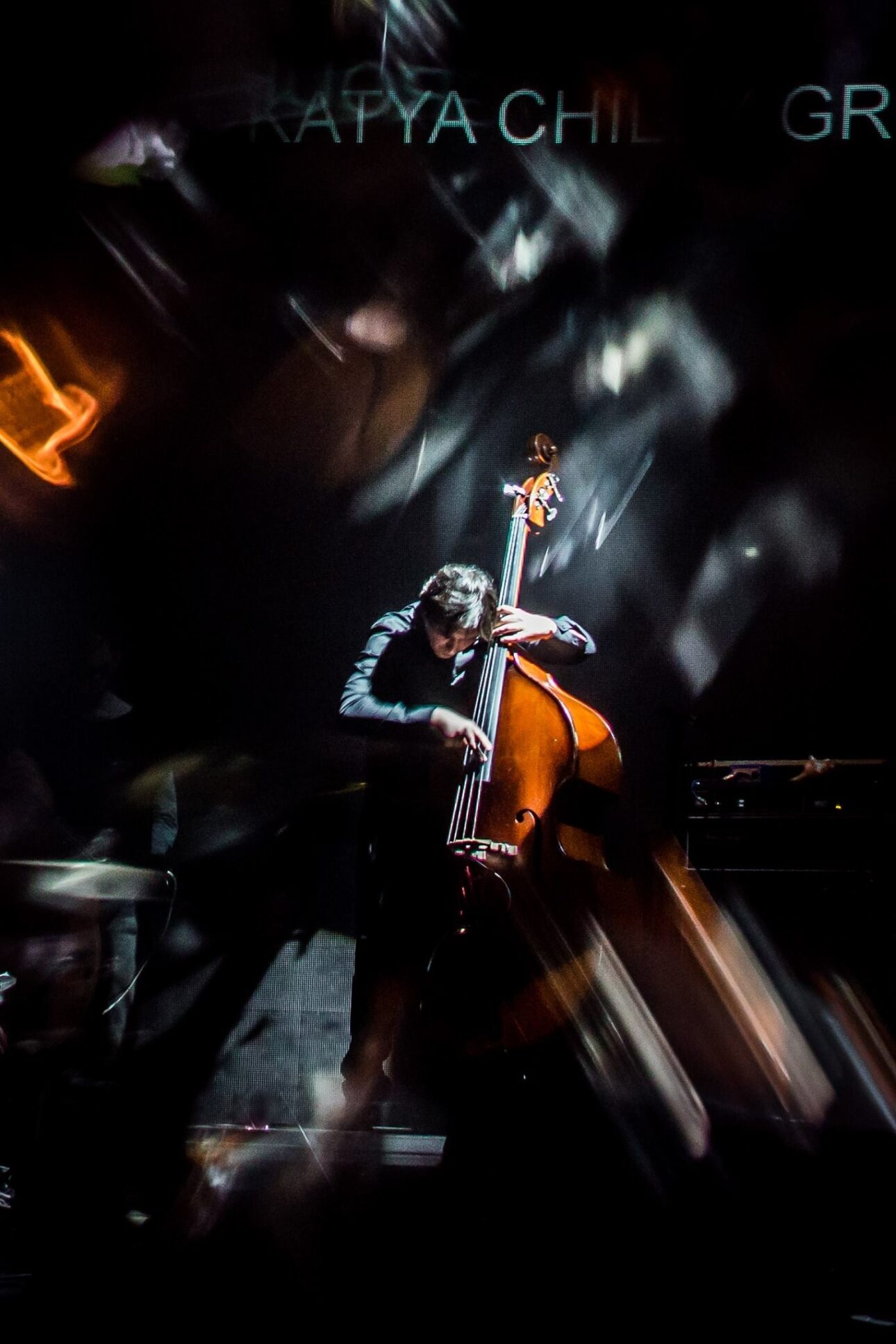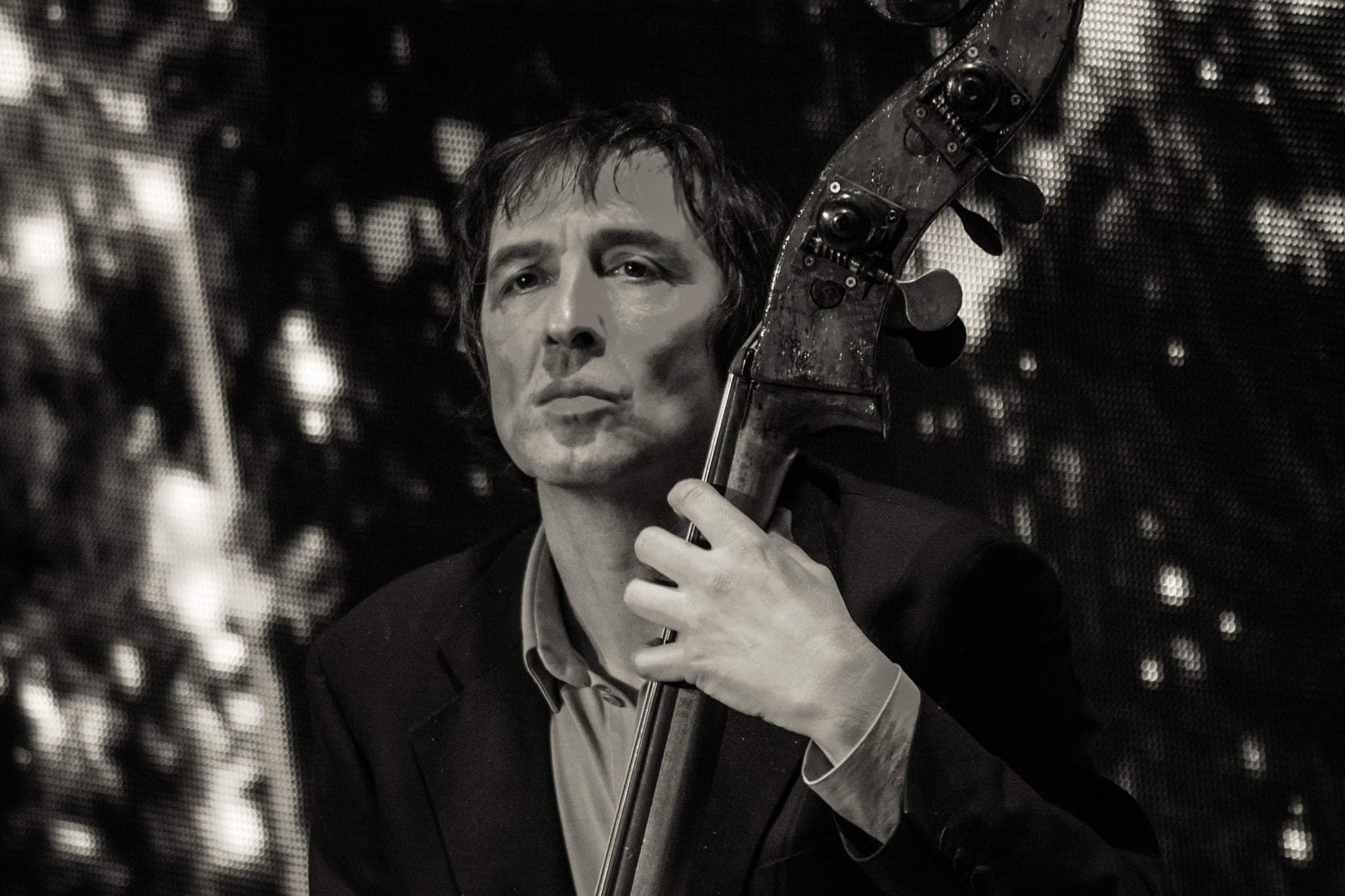Often, people become acquainted with musical instruments in childhood through Christmas presents, music school, or lessons from friends. But it also happens differently, when the instrument itself finds its musician, sometimes after many years of searching. This emotional phenomenon was experienced by double bass player, arranger, and music teacher Valentyn Korniienko.
The musician, who discovered the double bass at the age of 30, felt that very “ringing call” – an inner attraction to the instrument that is impossible to ignore. In many ways, this determined Korniienko’s technique, the depth of sound and creative freedom. Valenyn described how he managed to establish a connection with the instrument, which was new to him, and how much this influenced the performance’s features.
Emotional Resonance: The Beginning of the Musical Journey
Beginner musicians often choose instruments with a certain logic: availability, convenience, or the influence of mentors. However, most often, it is spontaneous interest and emotional response that play the decisive role.
Valentyn Korniienko, a musician with over 35 years of experience, experienced the same emotional resonance. He received a musical education in the early 1990s, starting with classical guitar and later pursuing music pedagogy. And only at the age of 30, already being an experienced bass guitarist, Valentyn got acquainted with the double bass.
It all happened suddenly at one of the sound checks. At that time, Valentyn played bass guitar in a band, and there were other guys nearby, one of whom just happened to have a double bass with him. Curiosity got the better of him, and Valentyn spent the next 10 minutes trying to play this instrument. It is difficult for an unprepared artist, but it still creates that very sound, the emotional resonance that should arise between the performer and the instrument. After that, the sound of the double bass remained in Valentyn Korniienko’s thoughts for a long time, so much so that later he got into debt, but got his own double bass. Since then, he has taken part in many international music competitions, received the title of Honored Worker of Ukraine and performed at many concerts, including Randy Brecker’s performance in Kyiv in 2005, the Lush Life concert in 2012 at NATO headquarters and many international jazz festivals. Would this have been possible without “falling in love” with the instrument?


How Emotional Connection Impacts Technical Mastery
It is no secret that emotional connection affects technical mastery. This is also confirmed from a scientific point of view. Cornell University published a study this year that emphasizes that emotional synchronization with the instrument is directly related to the mental and motor readiness of the musician, which increases the expressiveness and precision of musical sound.
As Valentyn Korniienko himself notes, when a musician deeply feels his instrument, practice becomes a passion. The musician stops feeling the routine of classes that take hours. Korniienko also discovered the “feedback effect” in this: over time, you begin to feel how the instrument reacts to care and diligence. The fact is that different people play the same instrument differently. Emotional resonance will be achieved not only by technique, which can be developed in practice, but also by emotional tuning. Physical and internal resonance between the musician and the instrument forms the timbre, phrasing and expressiveness.
A vivid example from Valentyn’s own career is the 2017 concert of Zlata Ognevich at the Caribbean Club with a big band. On that occasion, Valentyn personally wrote all the arrangements for the performance, played the double bass, and directed the musical process during the concert. His deep connection with the instrument helped him develop an orchestral perspective both as a double bassist and as an arranger.
Emotional connection feeds mastery. It sharpens concentration, deepens sensitivity, and brings music to life in a way that technique alone could not. Valentyn Korniienko has long since learned this from experience. Choosing the double bass transformed not only his playing style but also shaped his unique mindset as an arranger and musical director. In an orchestra, the double bass defines the harmonic foundation and rhythmic support. By becoming a double bassist, Valentyn began to perceive the vertical structure of music differently — from the bass line to the highest melodic voice — and to feel their relationship in a distinctive way. This perspective later had a direct influence on both the character and style of his arrangements.
When the Choice Is Not Obvious
Not every musician starts out on the “right” instrument – and that’s perfectly okay. Some of the most impressive creative transformations happen when musicians switch instruments later in life, revealing deeper layers of themselves in the process.
There are many such successful examples throughout history. João Carlos Martins, the famous Brazilian pianist, lost the ability to play after injuries and turned to conducting. However, after some time, he returned to the piano with a new expressive power. The end of his career was also a moment of a new beginning.
Simon House started out as a classical violinist, but switched to bass guitar when he decided that strings had no place in rock music. Years later, he returned to the violin – not in classical performance, but in the progressive rock scene. His electric violin became a defining element of bands like High Tide and Hawkwind, bringing orchestral nuances to rock scenes across Europe.
Even a seemingly late transition can reveal new potential. As Valentyn Korniienko learned when he discovered the double bass in his early thirties, the “right” instrument may not appear right away, but when it does, it requires total dedication. And when the choice feels right – even if it’s made late – it can change not only how you play, but who you become.


Practical Observations and Advice
In conclusion, Valentyn Korniienko states: Sometimes it is important to turn off logic and trust feelings when choosing your instrument. You can understand that this is precisely it if the sound evokes vivid emotions and does not leave your head, and the shape feels natural in your hands. In short, this is your new extension. Even if the choice seems impractical, belated, or unconventional, it can lead to deeper involvement, better practice skills and more expressive performance.
Maintaining an emotional connection can be difficult, especially when instruments have to be rented, sent, or even left at home due to travel or emigration. But this connection still exists. Valentyn Korniienko advises to personalize the instruments you play on, to feel them in a special “alive” way. Another way is to transfer your unique style to any instrument you try. This is not only a way to find your true instrument, but also an opportunity to establish a connection with it, to “become related”. Valentyn is sure that no matter what path a musician chooses, if they feel the response of the instrument in their hands, this instrument will respond with an impeccable sound.
SPIN Magazine newsroom and editorial staff were not involved in the creation of this content.




